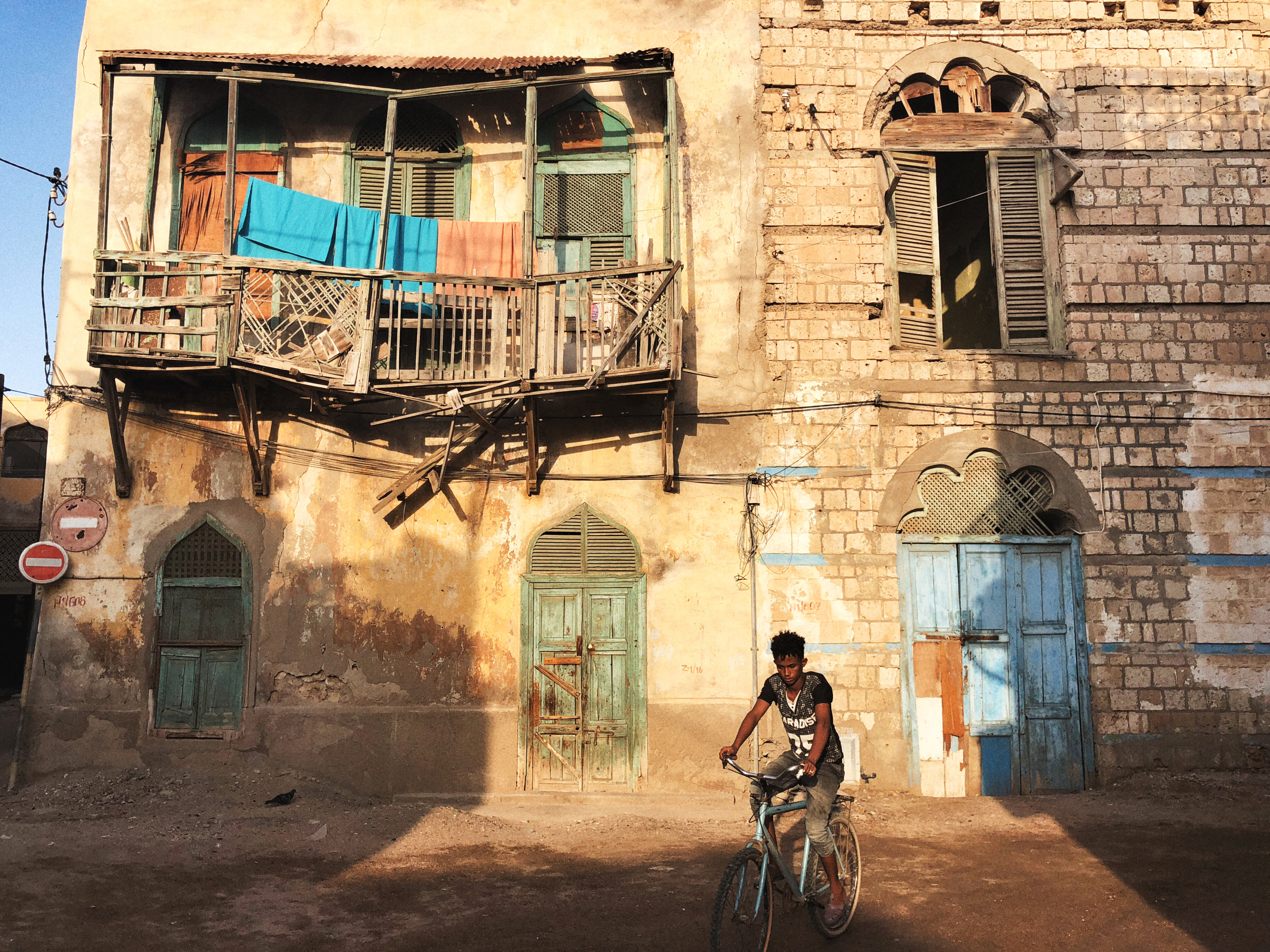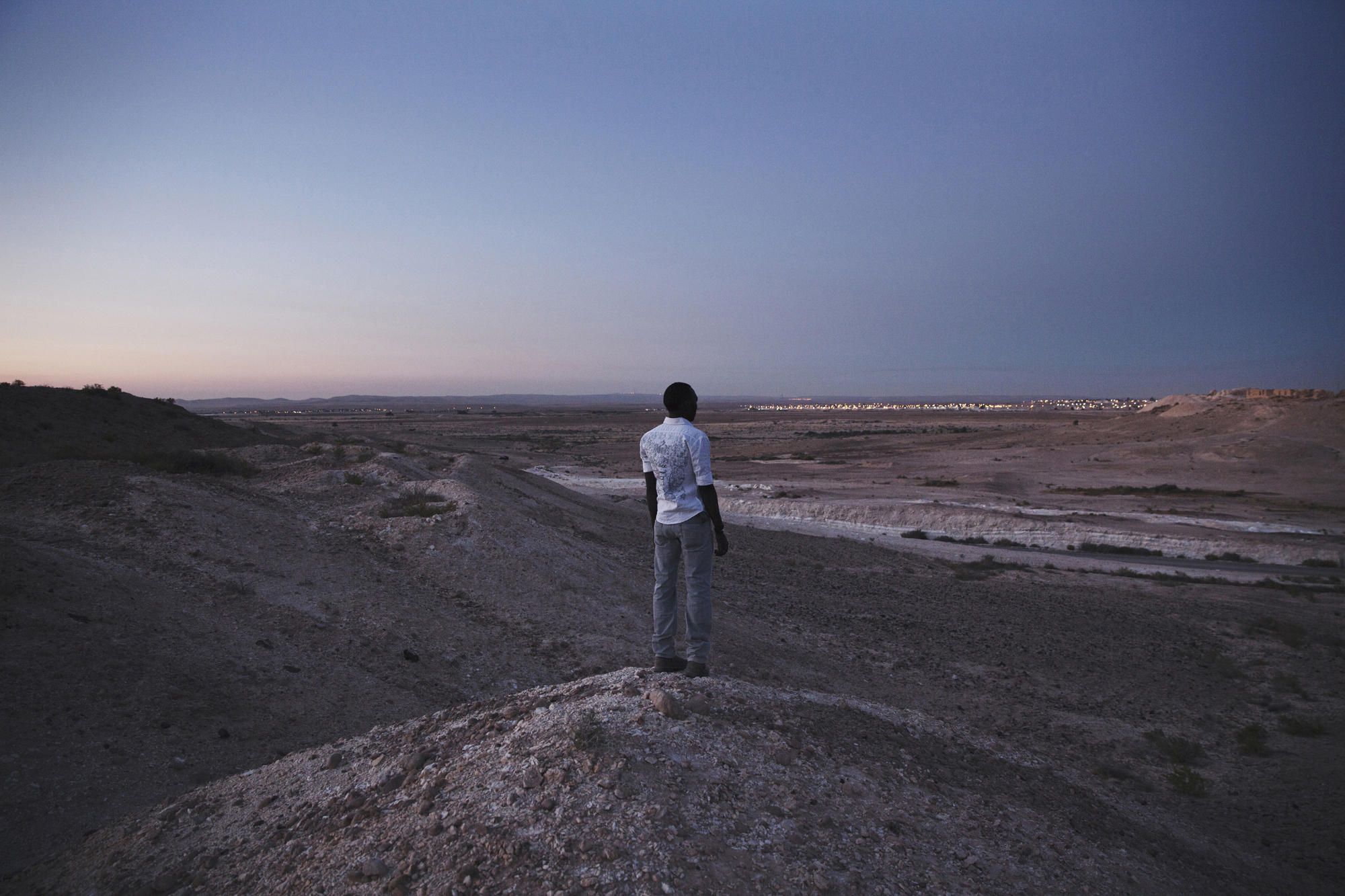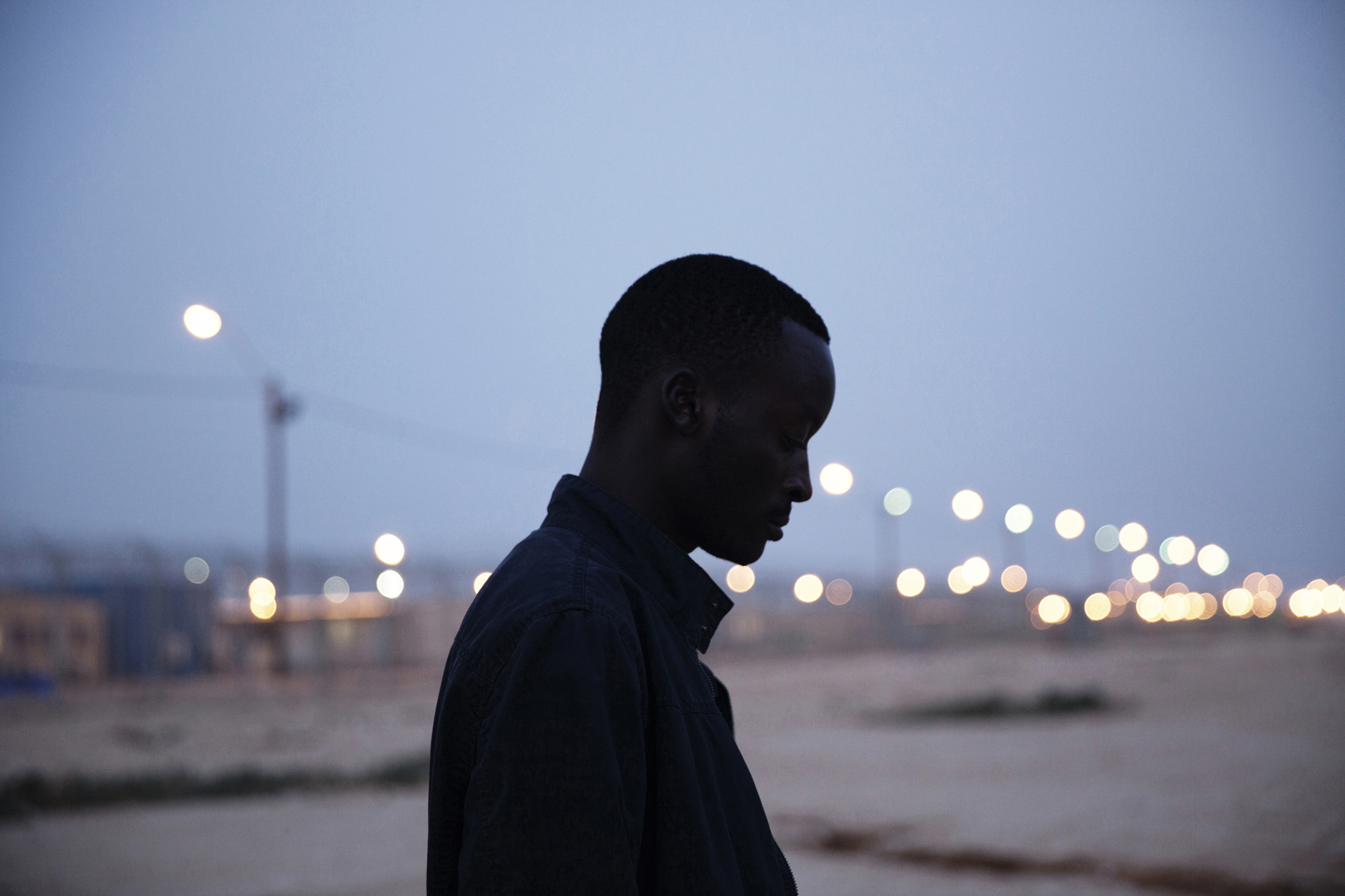Malin
Fezehai
Can you tell us a little bit about your background, and what first interested you in photography?
I grew up in a suburb of Stockholm, Sweden, and when I was entering high school, I attended a media and communications high school in the city center. I have dyslexia, and school was always a bit of a challenge for me, but when I took a photography course in high school, something snapped into focus for me, and I became obsessed. Since my background was different from many of the other students in the school, it became important to photograph my friends and my environment. I was being exposed to new things at the school, but photography became a tool to document my world that I wanted to preserve while entering (as I perceived it then) a different world. I would photograph my friends, and I would spend all my time in the darkroom.
![]()
The focus of your work has been on displaced communities - was this something that you were drawn to documenting or highlighting from an early stage of your career? What first interested you in this?
I was raised in an immigrant neighborhood in Stockholm, where I grew up with a Swedish mother, an Eritrean father, and an Egyptian stepfather. I have always felt a little out of place because I never had one cultural identity. I believe this is one of the reasons I gravitate toward displaced communities in my work. The feeling of otherness is something I feel very connected to.
Are there particular groups or communities that you have focused on, or that you continue to revisit in your work?
I work a lot across Africa, but in my work, I don’t focus on one specific group of people. More on the experience of being uprooted, and losing everything and having to start over in a foreign place.
![]()
Is there an image or a series of images that are particularly special to you?
Every project is unique in their way, so it’s a bit hard to say, but my work on African refugees had a big impact on me, and it’s the longest I have worked on a project.
How often are you traveling to capture these places and moments in time? Do you spend a while in the communities that you visit?
I would say I travel 6 or 7 months out of the year. The time spent varies a lot depending on the assignment's nature or if it’s a personal project I have taken on. I have done stories in a few days to several weeks.
![]()
How do you learn about or find the communities that you document?
I do a lot of research before going somewhere, but honestly, I learn the most when I am there and hearing stories directly from the community and spending time.
Do you distinguish between "professional" and "personal" work?
Not really. Personal is professional work as far as I am concerned.
What are you working on currently? Do you have any ongoing projects?
Everything has been put on pause right now because of Covid, and I am using this time to do research and figuring out what is next.
![]()
⬿Back to exhibition
I grew up in a suburb of Stockholm, Sweden, and when I was entering high school, I attended a media and communications high school in the city center. I have dyslexia, and school was always a bit of a challenge for me, but when I took a photography course in high school, something snapped into focus for me, and I became obsessed. Since my background was different from many of the other students in the school, it became important to photograph my friends and my environment. I was being exposed to new things at the school, but photography became a tool to document my world that I wanted to preserve while entering (as I perceived it then) a different world. I would photograph my friends, and I would spend all my time in the darkroom.

The focus of your work has been on displaced communities - was this something that you were drawn to documenting or highlighting from an early stage of your career? What first interested you in this?
I was raised in an immigrant neighborhood in Stockholm, where I grew up with a Swedish mother, an Eritrean father, and an Egyptian stepfather. I have always felt a little out of place because I never had one cultural identity. I believe this is one of the reasons I gravitate toward displaced communities in my work. The feeling of otherness is something I feel very connected to.
Are there particular groups or communities that you have focused on, or that you continue to revisit in your work?
I work a lot across Africa, but in my work, I don’t focus on one specific group of people. More on the experience of being uprooted, and losing everything and having to start over in a foreign place.

Is there an image or a series of images that are particularly special to you?
Every project is unique in their way, so it’s a bit hard to say, but my work on African refugees had a big impact on me, and it’s the longest I have worked on a project.
How often are you traveling to capture these places and moments in time? Do you spend a while in the communities that you visit?
I would say I travel 6 or 7 months out of the year. The time spent varies a lot depending on the assignment's nature or if it’s a personal project I have taken on. I have done stories in a few days to several weeks.
How do you learn about or find the communities that you document?
I do a lot of research before going somewhere, but honestly, I learn the most when I am there and hearing stories directly from the community and spending time.
Do you distinguish between "professional" and "personal" work?
Not really. Personal is professional work as far as I am concerned.
What are you working on currently? Do you have any ongoing projects?
Everything has been put on pause right now because of Covid, and I am using this time to do research and figuring out what is next.
